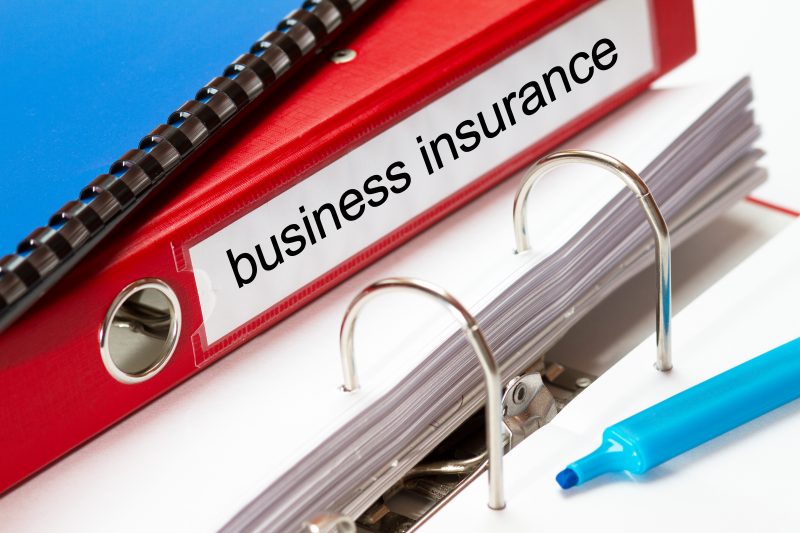By Susan Guillory – Guest Contributor
If your business had to close because of, for example, a fire or a hurricane, how long could you afford to cover ongoing expenses without incoming revenue?
As a business owner, you want to protect your company against potential loss, so you invest in a business insurance policy, perhaps commercial property insurance or general liability. But that might not cover any losses in income you experience due to a natural disaster or theft.
In that case, you should consider business interruption insurance coverage.
What is Business Interruption Insurance?
A business interruption policy offers insurance coverage for any loss in income you suffer because of a natural disaster or theft. The replacement of that lost income can be used for business expenses like payroll, loan payments, office supplies, and inventory.
What is Covered by Business Interruption Insurance?
Your business interruption insurance policy offers coverage in the event of a natural disaster such as a fire or wind damage, or in the case of theft. If your business is unable to operate as you normally do, because of commercial property damage, this coverage will reimburse you for the loss of income you experience as a result.
Your policy should cover:
- Profits based on past performance
- Fixed costs
- Payroll
- Taxes
- Loan payments
- Temporary relocation
It may also cover civil authority ingress/egress, which means that the government (local, state, or federal) has mandated businesses like yours to close and you experience a loss of income as a result. With the COVID-19 pandemic, some insurance companies are covering that loss, while others may have a coronavirus exclusion, so read the fine print of your policy.
What is Not Covered by Business Interruption Insurance?
It’s important to understand that a business income insurance policy does not reimburse you for physical loss caused by a disaster or theft. For that kind of coverage, you should consider a commercial property insurance policy.
It may also not cover loss of income caused by floods or earthquakes (sometimes you need an add-on policy for this type of coverage).
And, again, loss of income caused by a pandemic like COVID-19 may or may not be covered, so ask your insurer to find out.
How Does Business Interruption Insurance Work?
If you have experienced income loss due to a covered peril like a fire or theft, you as the policyholder will need to file a business interruption claim with your insurer.
It may be helpful to first review your business interruption coverage policy to know what is covered and what the process is for filing a business interruption insurance claim for your insured property.
You will be asked to provide information on your company’s income before and after the covered event that resulted in the loss of income. You will also be asked to provide details of both ordinary expenses for your business as well as those caused by the business interruption loss, such as having to temporarily relocate your company.
There may be a fixed timeline for when you can file your business interruption insurance policy claim, so make sure you report it as soon after the property damage or physical loss as possible to ensure coverage.
Check with your insurer to understand the process of filing a claim on your policy to make sure you provide all the required information the first time and your claim is processed quickly.
How Much Does Business Interruption Insurance Cost?
A business income insurance policy will vary in cost, depending on several factors. Rates can vary from one insurer to another, and the level of coverage you select, as well as the industry you’re in, can impact what you pay. Also, the higher your income, the more you’ll pay.
On average, business interruption insurance policies cost about $1,200 a year. You may be able to reduce your monthly premium if you are willing to have a higher deductible or less coverage.
How Much Business Interruption Coverage Do You Need?
When it comes to what your business interruption insurance covers, you need to consider how much business income you could afford to lose, should the worse happen. Do you need an insurance policy that would cover 100% of your lost income, or would less coverage be acceptable? If your policy didn’t offer full coverage for all your business expenses, could you easily pay for them from your business bank account?
Alternatives to Business Interruption Insurance
Business interruption coverage is just one type of insurance policy your business needs, but it’s not the only one.
You should also consider a commercial property policy, which will cover loss or property damage.
You might also consider extra expense coverage, which is similar to business interruption insurance but pays for expenses that are outside of your normal operating costs.
Then there’s contingent business interruption insurance, which protects against a loss of income that happens as a result of your supplier or distributor shutting down. So if you buy supplies from a vendor and they have a disaster that destroys all its inventory, you would suffer a loss of income as a result. Contingent business interruption insurance (not very common in the insurance industry) would cover your loss.
It’s a smart idea to see what other types of business coverage your insurance agency offers since you can often bundle your commercial property or general liability insurance policy with other coverage and save money.
Protecting your business from a potential loss in income could be the difference between a disaster being a devastating experience or just a headache. With the right business interruption coverage from a reliable insurance company, you can make up that lost revenue and get back on track with your business.
This article originally appeared on Nav.com.
Susan Guillory is a senior content writer for Nav and blogs about small business on sites including Forbes and AllBusiness.

